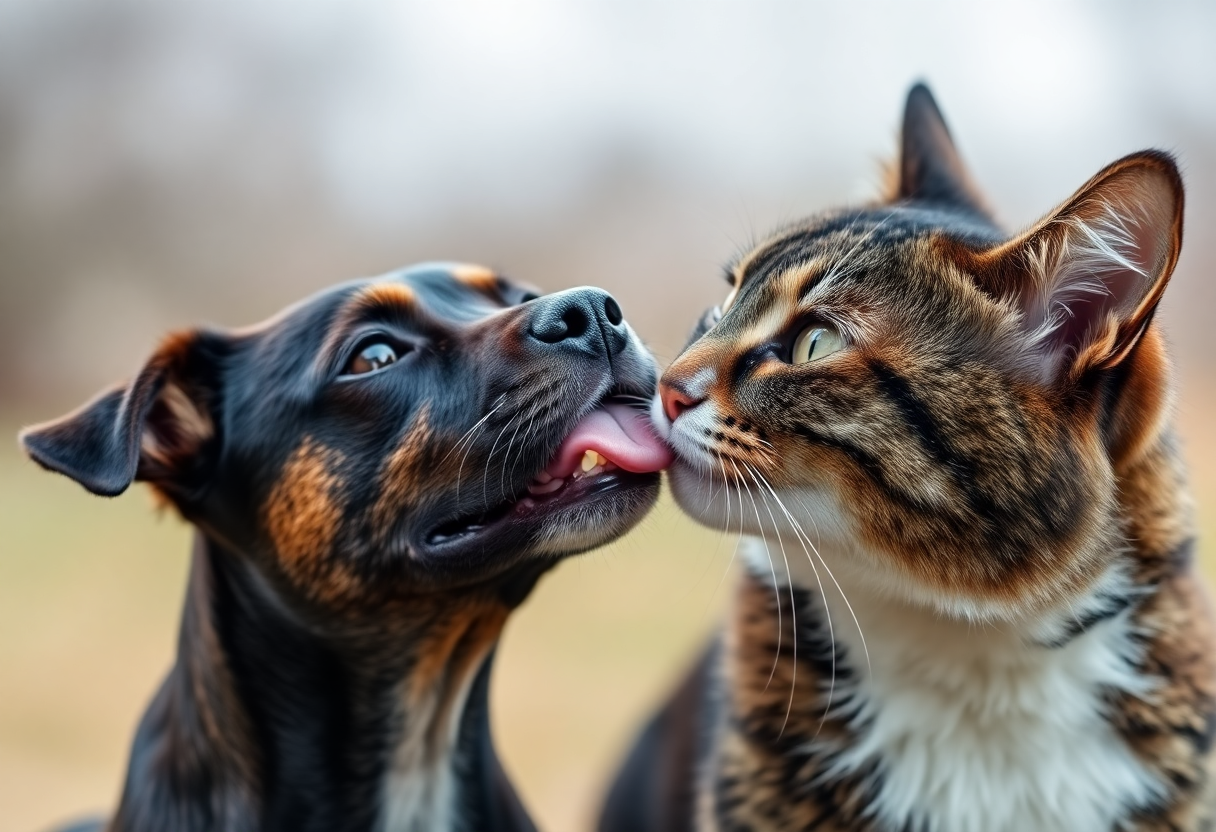Why Do Dogs and Cats Lick You?
Licking is a common behavior exhibited by both dogs and cats, and while it may seem trivial, it can convey a multitude of messages and emotions. Understanding why your furry friends lick you can deepen your bond and enhance your relationship. In this post, we will explore the various reasons behind this behavior.
1. Communication and Affection
One of the primary reasons dogs and cats lick their owners is to show affection. When a pet licks you, it is often their way of saying, "I love you." This behavior is rooted in their early experiences as puppies or kittens, where they would lick their mother and siblings to strengthen their bonds.

2. Grooming Behavior
Both cats and dogs engage in grooming behaviors, and licking is a natural part of this process. Cats are known for their meticulous grooming habits, and when they lick their humans, it can be a sign that they consider you part of their family. Dogs also lick themselves and others as a way to clean and maintain their fur.
3. Seeking Attention
Pets quickly learn that licking can attract attention from their owners. If your dog or cat licks you and you respond with petting or talking, they may continue to do it to receive your affection. This is particularly common in dogs, who thrive on social interaction.
4. Taste Sensation
Sometimes, pets lick simply because they enjoy the taste of your skin. Whether it's the saltiness from sweat or the remnants of food, licking can be a sensory experience for them. Cats, in particular, are known for their quirky tastes, and they may find certain scents or tastes appealing.
5. Stress Relief
Licking can also serve as a coping mechanism for some pets. When a dog or cat feels anxious or stressed, they may lick themselves or their owners as a way to soothe themselves. This repetitive motion can provide comfort and help them manage their emotions.
6. Instinctual Behavior
In the wild, mother dogs and cats lick their young to clean them and stimulate their bodily functions. This instinctual behavior can carry over into domestic life, where your pet may lick you as a way of caring for you, similar to how they would care for their offspring.
7. Medical Reasons
While it is important to note that excessive licking can sometimes indicate an underlying issue, such as allergies or skin problems, this post focuses on the more common behavioral reasons. If you notice changes in your pet's licking habits, it’s advisable to consult with a veterinarian for further evaluation.
Conclusion
Understanding the reasons behind why dogs and cats lick can help you appreciate their unique personalities and foster a closer bond. Whether it's a sign of affection, a way to communicate, or simply a habit, licking is a natural behavior that reflects the strong connection between you and your furry companion.